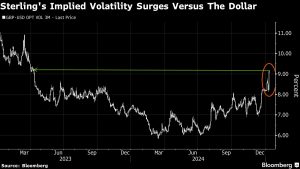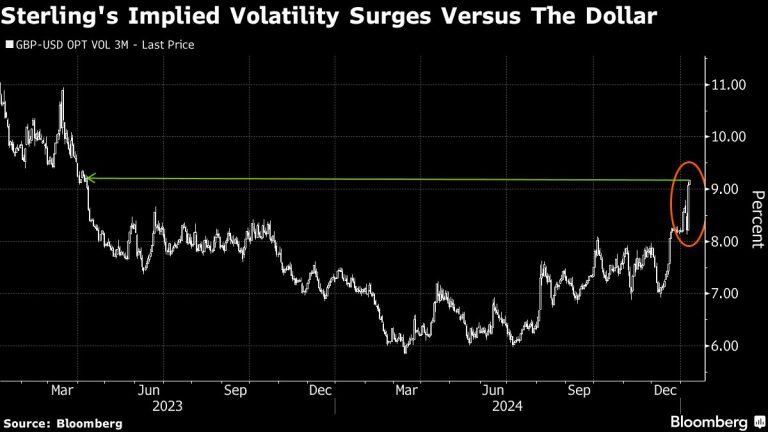Stay informed with free updates
Simply sign up to the Geopolitics myFT Digest — delivered directly to your inbox.
Notice that it isn’t the prime minister of Greece or Lithuania that Elon Musk is tormenting. The stakes would not be high enough for him. Nor has he posted mean things on X about the leaders of China. There is too much to lose in that colossal market. No, it is Britain, like Germany, that is optimally sized for an intervention: countries big enough to arouse general interest, but not so big as to make or break a plutocrat’s fortunes. Their middling status is what exposes them to the rocket man’s curiosity (which appears to have wandered somewhat from procurement reform in Washington).
In other words, the problem here is that Britain is exactly the wrong size. And this wouldn’t be the first time. Perhaps one of the worst handicaps a nation can have in this century is medium scale.
Of the states that tend to be rated the most efficient in the world, some are democratic, such as Finland, and some aren’t, such as the UAE. Some are western, such as New Zealand, and some aren’t, such as Singapore. The linking theme is that most have small populations. This “shouldn’t” be true. In principle, 50mn people are no harder to serve than 5mn, assuming the civil service itself is commensurately bigger. Yet here we are.
With respect to Noble Rot and other honourable exceptions, a rule of dining out is that no restaurant can maintain its standards once it expands beyond a certain point (two outlets, I suggest), even if management grows with it. A similar discontinuity often governs, well, government. How come? Perhaps the feedback loop between policies and results is quicker when most citizens live in a tight, observable radius. Or perhaps small nations aren’t too proud to roam around for ideas. (It remains a staple of British thought that two healthcare models exist on Earth: ours and America’s.) Either way, a sub-10mn population seems to enable — though far from assure, as Libyans can confirm — a certain slickness.
And not just in the public realm. The success of Nordic and Israeli companies abroad has no single cause. But it might help that executives there have to think about foreign markets from the off. With 70mn people at home, their French or British peers have less of that impetus. At the same time, they can count on nothing close to American or Chinese levels of domestic demand and capital. There is no fable that describes the precise opposite of Goldilocks: a state of affairs that is just wrong. The arc of a UK tech firm might suffice.
The advantages of smallness are eternal. The uses of gigantism are more peculiar to this era. In the “rules-based international order”, as no one called it at the time, a billion-strong nation was theoretically no mightier than a microstate, just as a tycoon and a pauper stand equal before a domestic court. No doubt, this principle was honoured more in the breach than in the observance. “International law” is still dropped into conversation with bizarre solemnity, given that it often has no third-party enforcement mechanism. (Thomas Hobbes knew what “covenants without the sword” were worth.) Still, the pretence of a rule-bound world was nice, and the reality often quite functional.
Now? If what is taking shape is a world where might is right, then brute scale becomes an advantage again. The clever old Anglo-French middle-country gambit, of using institutions like the UN to look superpowers in the chin, if not in the eye, falls away.
In fact, in a world of three giants — two of whom, India and China, account for a third of humanity — it is not clear that having 70mn people is vastly more advantageous than having 10mn. Consider defence spending. In absolute terms, Sweden’s annual budget ($9bn) is closer to Britain’s ($75bn) than Britain’s is to China’s (an estimated $296bn). And this raw cash total does more to determine a nation’s hard power — the scale of force it can deploy in the actual world — than percentages of GDP. Otherwise Algeria would outmuscle France, and Oman eclipse Britain.
On a similar note, the silliest statistic in Britain’s public discourse is that we are the “sixth-biggest economy in the world”, which is like being the third biggest football club in Manchester. It fails to disclose that the gap to number one is larger than that to number 20.
The predicament of mid-size isn’t universal, of course. South Korea has achieved great progress over decades, whatever the recent hubbub there. Countries can be small and dysfunctional (Honduras), big and not mighty (Indonesia, at least for now). All the same, the broad pattern is unnerving. Or at least it is when seen from Europe, whose oligopoly of nations — France, Germany, Britain, Italy, Spain and increasingly Poland — are each caught in that awkward status between manageably compact and world-shapingly huge.
There is but one way around this, and it feels transgressive to even mutter it in passing amid so much ambient nationalism. In the last century, the case for European integration was to entrench the peace. In this one, it is to make the continent’s numbers count in the outside world. As a goal, this is less high-minded but not much less existential, not with a self-dealing US around, or an assertive China, or a surging India, or a Russia that outnumbers any one European nation, and almost any two. If the innate romance of the idea no longer stirs voters to “ever closer union”, don’t rule out that raw survival instinct will.
























+ There are no comments
Add yours